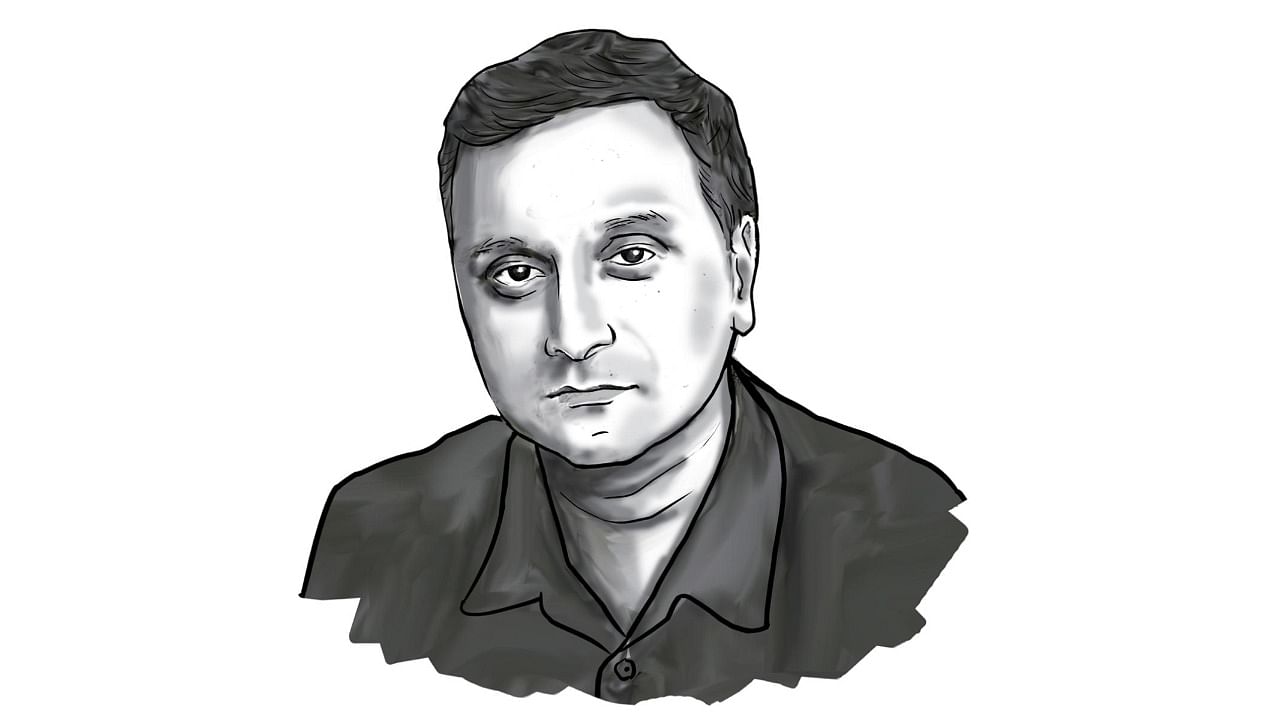
Poet, folklorist, orator, teacher, legislator, administrator and co-founder of the Dalit movement in Karnataka, Siddalingaiah’s many-layered engagement with the life of the state defies easy characterisation.
Indispensable for a historian of contemporary morality in Karnataka, Siddalingaiah’s work is an elaboration of a rich vision of humanism. His debut book of poetry, Holey-Maadigara Haadu (The Song of the Holeyas and Maadigas, 1975) expressed the suffering of Dalits with a fury and imagery hitherto unknown in modern Kannada poetry. Due to an early attraction to the class analyses of Marxism, his poetic focus though was not solely fixed on the Dalit experience. The famous poem from his debut anthology, Nanna Janagalu (My People), for instance, articulated the experience of several kinds of toiling labourers without referring to their community identities.
The title poem of his second book of poetry, Saviraru Nadigalu (Thousands of Rivers, 1979), which viewed society as a place of struggle and likened it to a vast ocean formed by thousands of rivers, offered a vision of deep political and cultural plurality. Sung with revolutionary fervour at political rallies and street processions organised by the Dalit Sangharsh Samiti, the poems from these anthologies were integral to the emerging political consciousness among the Dalit communities in Karnataka.
A rage towards the exploitative social order didn’t mean a simultaneous rejection of tradition in Siddalingaiah. A scholar of Kannada literature, he identified moral lineages in the past to his political concerns. His well-known poem, Chomana Makkala Haadu (The Song of Choma’s Children, 1979), asks the country where everyone knew of Choma, the Dalit protagonist in Shivarama Karantha’s tragic novel, Chomana Dudi (Choma’s Drum, 1933), to listen to the stories that his children wish to narrate in the present.
Clarifying that the school of Bandaya (Protest) literature, which his poetry is seen to have inaugurated, wasn’t the first to embrace a pro-people stance, he saw predecessors for the latter in Pampa, the 10th-century Jain poet, who claimed that the human community was one (“Manushya Jati Tanonde Valam”), the Shaiva composers of Vachanas and Kanakadasa.
In a recent interview, Siddalingaiah argued that Dalit literature was not separate from Kannada literature and observed that Dalit writers were custodians of the humanistic thought found in the Kannada literary tradition. Advising them to cultivate a close understanding of this moral legacy, he reminded them that giving voice to everyone’s pain was their responsibility.
The breadth of Siddalingaiah’s political and moral vision -- as well as that of the two other co-founders of the Dalit movement, Devanur Mahadeva, the writer and B Krishnappa -- made a difference to the character of the Dalit movement in Karnataka. The founder-activists invited well-wishers from non-Dalit communities to participate in their organisational efforts. Their regard for the significance of Ambedkar for the Dalit movement didn’t mean an avoidance of Gandhi, Lohia or Marx. And, non-violence stayed central to their political work.
In the early 80s, Siddalingaiah wrote a series of articles profiling village deities for the newsletter of the left-Samudaya theatre movement, which were collected together in a book titled Avataragalu (Incarnations, 1982). In this exercise aimed at demystifying God, he narrated a series of hilarious episodes to show that religion was nothing other than a human affair. In one instance, a village deity addresses upper caste girls in the plural and those from lower caste families in the singular. Abandoning this critical attitude in later years, Siddalingaiah became more interested in the humane values animating these deities. In an interview I did with him on village deities a decade ago, he noted that “the well-being of all” and “the celebration of life, the grandness of life” were central to the festivals of these deities.
In Ooru-Keri (1996), his celebrated autobiography, Siddalingaiah used wit to narrate tragic life experiences and disclose a self that was securely confident and free from resentment and bitterness toward caste subordination. In his autobiography as well as in his speeches and conversations, wit occasioned a communion, an opportunity for exploring common grounds of being together. It enabled an awakening, a loosening of hardened sensibilities. It also broke the political tedium and made reality a bit more bearable, achieving a prelude perhaps to starting things anew.
I was among the hundreds of friends and well-wishers who wished to see Siddalingaiah return home safely from the hospital. He had struggled against Covid complications for over a month. In his death, we lost a rare voice of compassion, strength and wisdom.